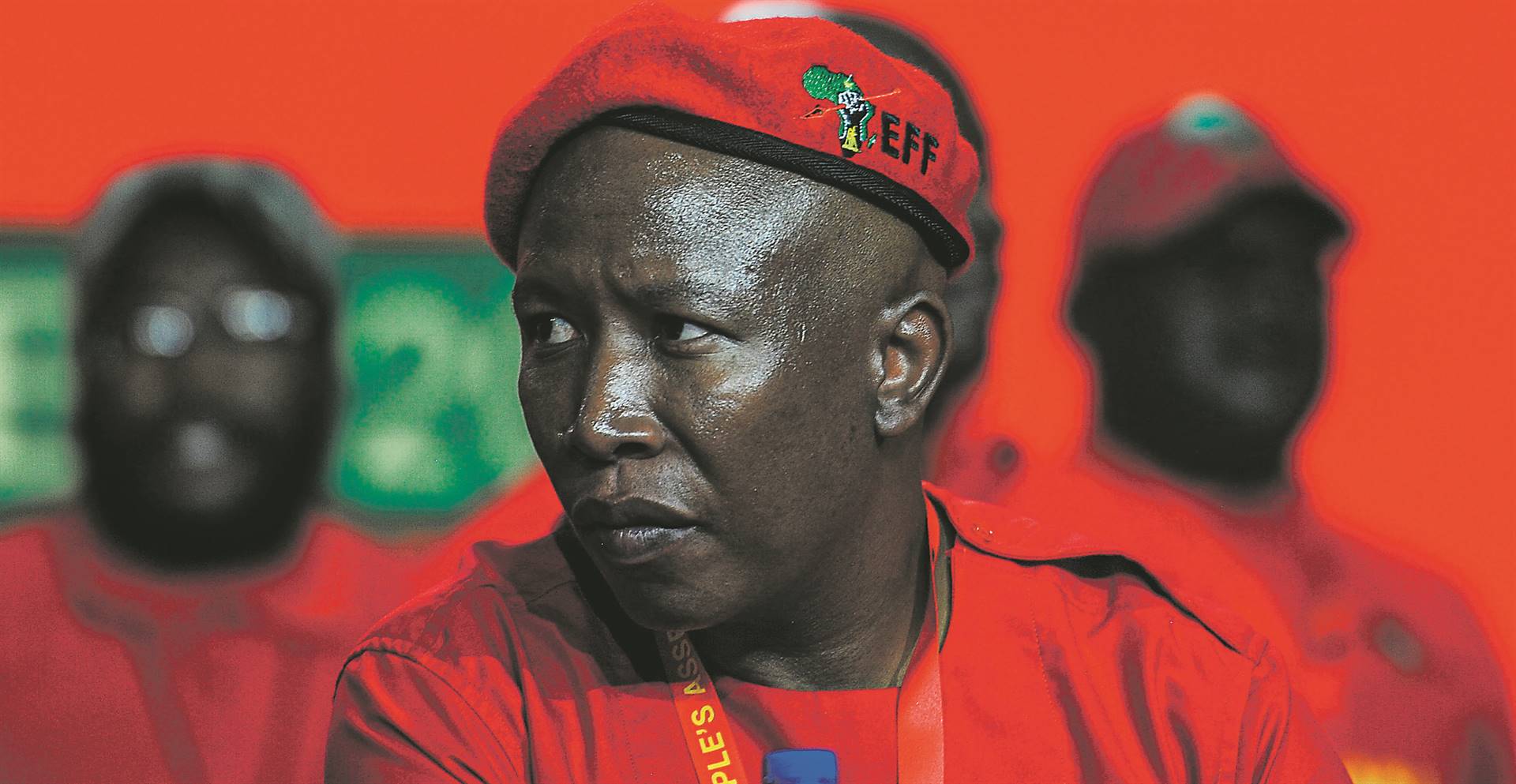


Julius Malema at the party’s second national elective conference. Picture: Rosetta Msimango
- The North Gauteng High Court in Pretoria has set aside a controversial fuel supply tender awarded by the City of Tshwane.
- AmaBhungane last year exposed flaws in the tender process and a conflict of interest between one of the winning bidders and a city official.
- That bidder also paid apparent kickbacks to front companies of the EFF commander-in-chief and secretary-general.
The North Gauteng High Court in Pretoria Wednesday set aside a controversial City of Tshwane fuel tender that was awarded to three companies, including one that funnelled millions into accounts linked to EFF commander Julius Malema and secretary-general Marshall Dlamini.
The payments appear to have been kickbacks in connection with the R500 million tender which the City awarded in January 2019 to supply it with fuel for a period of three years.
The tender was split between three bidders, including the service provider which held the existing fuel contract, Balimi Barui Trading (BBT).
Its owner, Hendrick Kganyago, paid R15 million to three companies linked to Malema and Dlamini between the tender being advertised in mid-2018 and last September when amaBhungane exposed the payments. The EFF’s sizeable minority in the Tshwane council gave it “kingmaker” status.
Kganyago’s payday is set to terminate early after rival bidder Q-tique 27 brought an application to have the tender set aside. Q-tique brought the application after amaBhungane’s article.
In the slam-dunk ruling, Judge Leonie Windell cited the “irrational” way in which the tender was evaluated – as detailed in our exposé. Q-tique did not present evidence on the EFF payments and these were not placed in contention before the court.
When City officials scored bidders on pricing, they did so based on six fuel types. Bidders were expected to provide prices for each fuel type, although the City, since at least 2015, only used two types of fuel – unleaded 95 and high-grade diesel.
In its bid, BBT offered implausibly low figures for fuel the City did not use, and for the two fuels the City did use, its pricing came in significantly higher than its rival bidders. “BBT had gamed the system,” our article said.
In scoring the bidders’ prices, the City simply totalled the figures for each fuel type and determined the aggregate price without factoring the quantities of each fuel needed.
The judgment states: “The use of this method of evaluating the tenders on price evidently had the result that BBT was evaluated to be the bidder with the lowest price [and scoring the highest points on the aspect of price], notwithstanding that BBT’s tender prices in respect of the two products that were in fact required by the City for use was by far the most expensive.”
READ | City of Tshwane launches investigation into controversial property development tender
The ruling concluded that the evaluation process was “irrational and procedurally unfair” and at odds with procurement policy.
It added: “The evaluation method opened the process up for abuse and corruption in that if a tenderer knew in advance that only two of the six products would actually be purchased by the City, it would make sense to tender high in respect of those products, but very low on the other products.”
This is precisely what BBT did. Not only would it have insights gleaned from its time as the incumbent service provider on the previous fuel tender, but it also appeared to have had a little help from the inside as a follow-up amaBhungane article showed.
Kganyago’s brother, Stanley, is a City official; was listed as the contact person on the tender advertisement, and participated in the bid specification.
The judgment refrains from commenting on the conduct of the two individuals, citing an ongoing forensic investigation into the tender that was commissioned by the City.
Windell’s judgment does, however, draw attention to the City overpaying the three companies that won the tender by R10 628 393, an amount it says is “common cause” between the parties. AmaBhungane’s article had calculated even higher overpayments.
“These overpayments only ceased after September 2019, coincidentally after an article appeared on the amaBhungane website.”
The judgment dismisses procedural claims brought by the respondents who had argued the application had been brought too late after the fact.
It orders the contracts with the three winning bidders be set aside, and declares the decision by the City to award the tender “constitutionally invalid”.
The order is suspended until 31 August, presumably to give the City time to put in place new supply arrangements. The City, city manager and two of the bidders, all listed as respondents, are to pay costs.
*The amaBhungane Centre for Investigative Journalism, an independent non-profit, produced this story. Like it? Be an amaB Supporter to help us do more. Sign up for our newsletter to get more.
![]()
![]()

